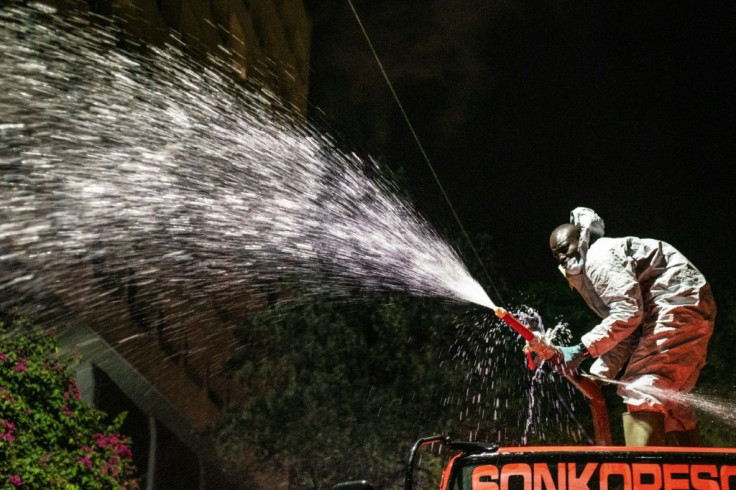Coronavirus Warning: Disinfectants Being Sprayed On People, Roads Can Be Ineffective And Harmful
Despite the warnings from health experts, a drone has dispersed clouds of disinfectant in the sky above Indonesia’s second-largest city- Surabaya on Tuesday.
Such a measure is taken to contain the fast-spreading deadly coronavirus which has killed over 37,000 individuals worldwide have been severely criticized by health experts and regarded as a health hazard as well as a waste of time and resources.
Also, in the Indian state of Uttar Pradesh, migrant workers were doused in bleach disinfectant solutions that are used to sanitize buses, after returning home.
According to Ashok Gautam, a senior officer in charge of COVID-19 operations in Uttar Pradesh, about 5,000 individuals have been publicly sprayed, CNN reported.
“We sprayed them here as part of the disinfection drive, we don't want them to be carriers for the virus and it could be hanging on their clothes, now all borders have been sealed so this won't happen again," CNN quoted Gautam.
The officer told CNN that the disinfectant used to spray on people was a solution made from bleaching powder and that it wasn’t harmful to the human body.
However, chemical disinfectants that can work on surfaces can be quite dangerous when sprayed on people. Per the World Health Organization (WHO), putting disinfectants on your skin cannot kill any virus that is already there in one’s body.
The chemical wash spray has appalled many Indians. According to Lav Agarwal, a senior official at the Ministry of Health and Family Welfare, the local officials who had been doing the act of spraying disinfectants on people have been reprimanded. He also declared that spraying migrant workers wasn’t a required policy in the nation.
“This is an overzealous action done by some employees at the field level, either out of ignorance or fear," CNN quoted Agarwal.
The deadly novel coronavirus is a contagious respiratory disease that spreads via droplets from the nose or mouth when an infected person coughs, sneezes or talks. Handwashing and targeted cleaning of commonly touched surfaces can offer better protection that these kinds of mass disinfecting.
Spraying is probably a cheap and visible way of doing it, but careful attention to personal and environmental hygiene is probably more effective," News18 quoted Paul Tambyah of the Asia Pacific Society of Clinical Microbiology.

© Copyright IBTimes 2024. All rights reserved.






















